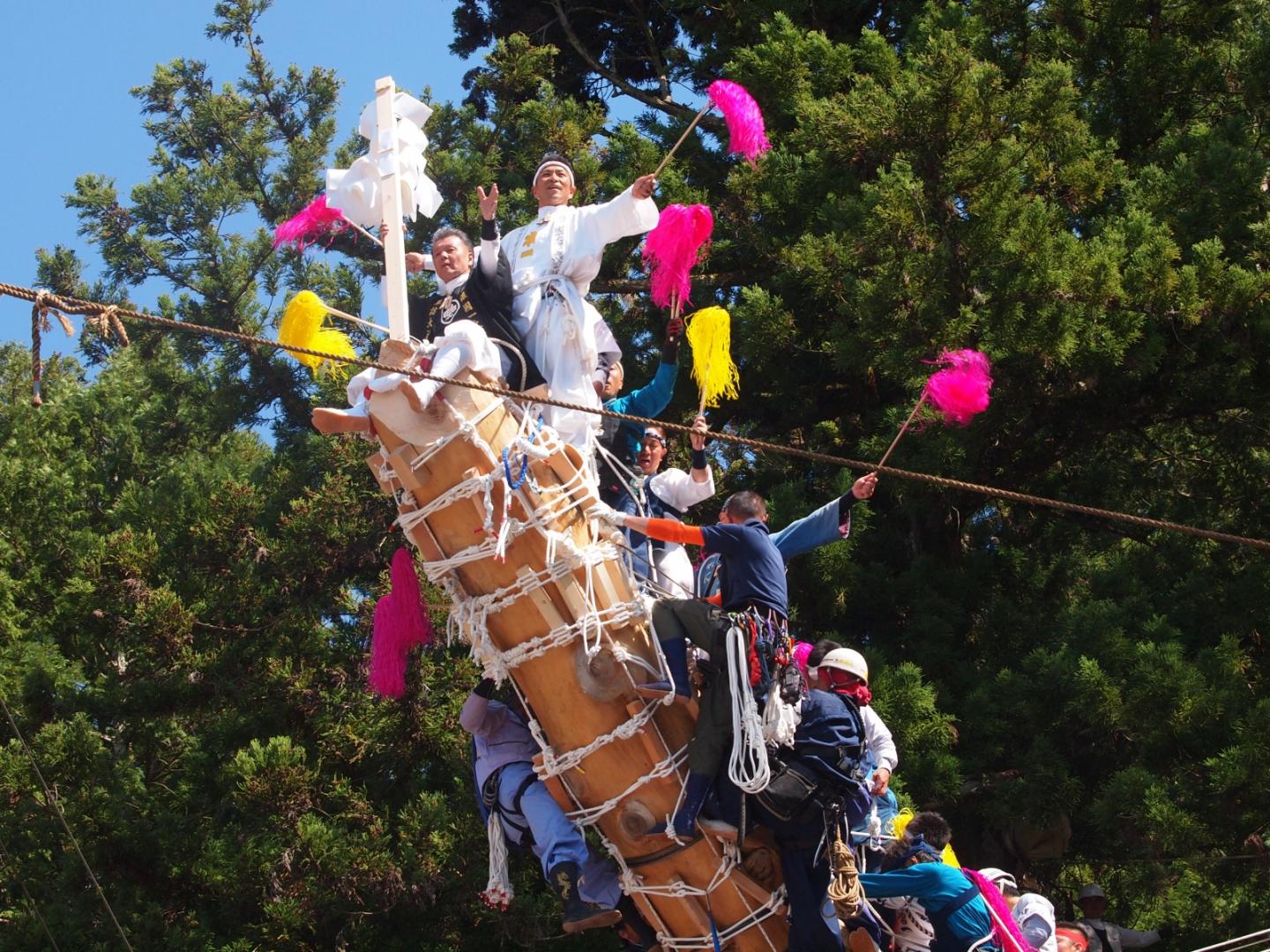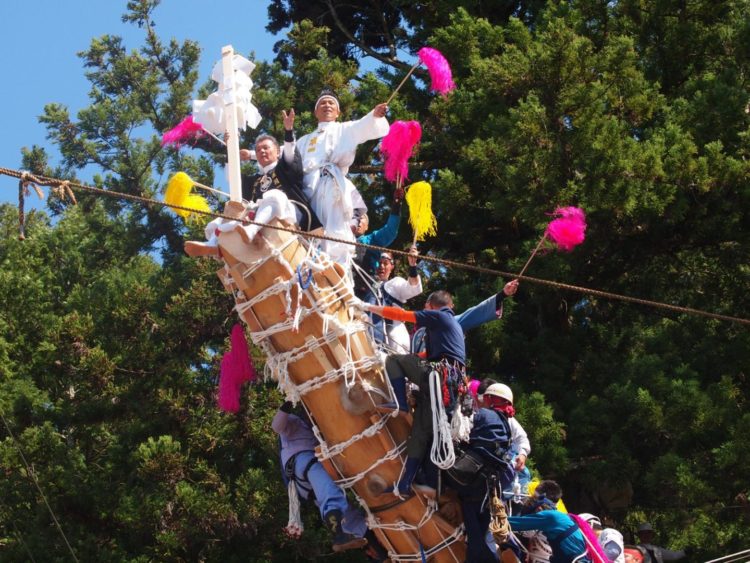
Credit: Copyright ©2012-2014 Suwa Tourism Association
Proteins denature, or “cook” in heat, irreversibly changing their structure, like how an egg boils or a slab of sirloin turns to steak. This prevents proteins from being used in applications where they would need to withstand heat. Scientists have had high expectations for proteins to be used in nanotechnology and synthetic biology. A new hyperstable artificial protein constructed at Shinshu University in collaboration with Princeton University hopes to make some of those aspirations possible with the successful development of SUWA (Super WA20), a nanobuilding block in the shape of a pillar, anointed so in honor of the Onbashira Matsuri, also known as “the pillar” festival where men climb on and slide down a mountain side on large timber logs, a holy tradition dating back 1,200 years. The lumber is then used to build the one of the main shrines of Japan, the Suwa Taisha. The hope is that these SUWA nano-pillars will go on to build things just as central to society.
Summary of this research:
- A de novo protein SUWA (Super WA20) is significantly more stable than its predecessor WA20.
- SUWA did not boil at 100 °C, while WA20 denatures at 75 °C. The denaturation midpoint temperature of SUWA protein was found to be 122 °C. This is an ultra-stabilized artificial protein.
- The characteristic three-dimensional structure of the dimer with a bisecting U topology of SUWA was elucidated by X-ray crystallography.
- Molecular dynamics simulation suggests that the stabilization of the center of the α-helices contributes to the structural stabilization and high heat resistance in SUWA.
- Protein nanobuilding blocks using SUWA, nanoscale pillars “nano-onbashira” are expected to be applied to nanotechnology and synthetic biology research in the near future.
Proteins and self-assembling protein complexes perform functions inside the living body like nanomachines making them a key component in the complex phenomena of life. Artificial design of proteins with desired functions would have many applications in biopharmacy and provide chemical reactions with low environmental impact. This nanotechnology is in the scale of molecules, 1/1,000,000 of a millimeter, making them difficult to work with, but have many promising applications.
A research group led by Ryoichi Arai of Shinshu University and Michael H. Hecht of Princeton University solved the crystal structure of the de novo protein WA20 in 2012. This current research builds upon the WA20 structure, to make the Super WA20 –aka SUWA– recently explored in the paper published in the February issue of ACS Synthetic Biology, an American Chemical Society’s academic journal.
Associate Professor Ryoichi Arai of Shinshu University Interdisciplinary Cluster of Cutting Edge Research’s Institute for Biomedical Sciences and Naoya Kimura, a graduate of the Faculty of Textile Science and Technology of Shinshu University were central figures behind this new development of SUWA, a hyperstable artificial protein.
The naming of SUWA is derived from the location of the Onbashira Matsuri, which takes place in the Suwa region of Nagano Prefecture. Nagano is where Shinshu University holds its five campuses.
###
Media Contact
Hitomi Thompson
[email protected]
81-263-373-529
Related Journal Article
http://dx.





